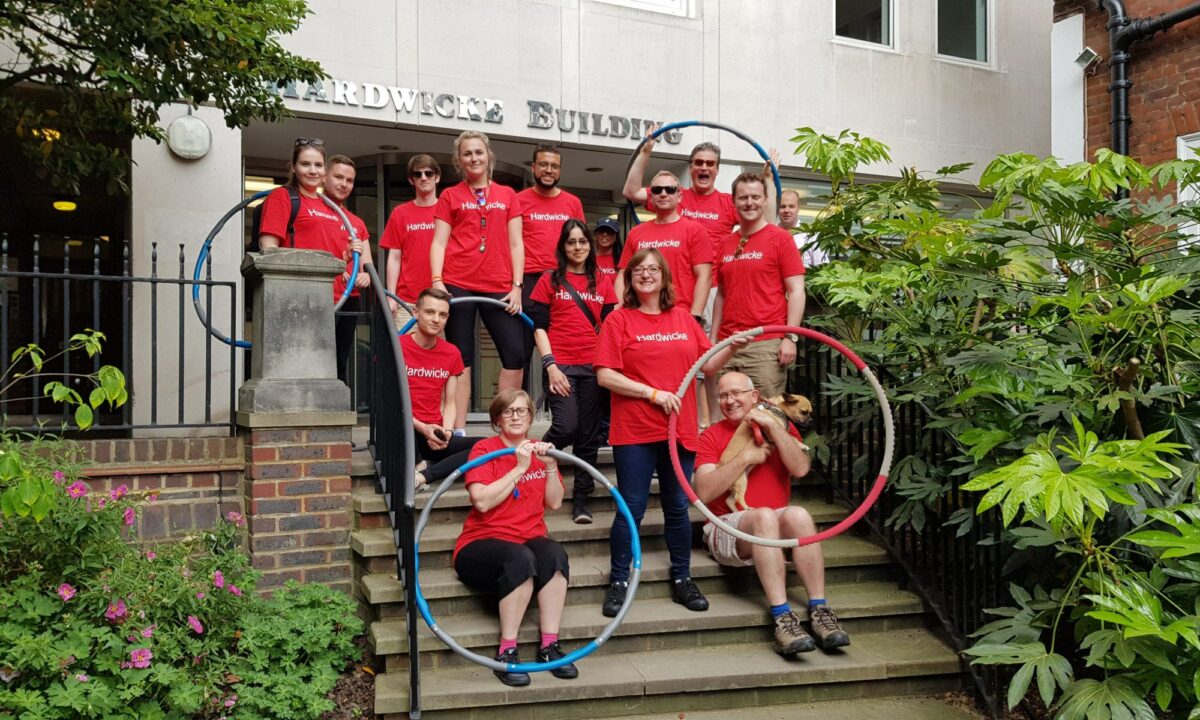‘Many years ago, when I first started out in chambers, a male colleague said to me, “It’ll take you years to pick this up, darlin’”.’ Although patronising at the time, Hardwicke’s Amanda Illing now laughs at the memory.
It might not rise to the worst example of sexism or misogyny in a clerks’ room, but it is an example of how the historically male-only environment, prevalent in many sets for decades, could make for uncomfortable working conditions. Change has come to chambers over recent years, however, with women now making up around 15 to 20 per cent of clerks, according to the Institute of Barristers’ Clerks. What’s more, the likes of Temple Tax Chambers and Field Court Tax Chambers boast all-women clerking teams, and many of the administrative and leadership functions within others sets are run by women staff.
Notwithstanding her former colleague’s flippant remark, Illing has always found working in chambers an enjoyable experience. ‘I have worked in the legal profession for 30 years and personally, in every job I’ve had, I’ve been inspired, supported and encouraged by senior men (and women) who saw in me something I couldn’t see in myself,’ she says. ‘As with every industry, there will always be pockets of unacceptable behaviour and men using perceived power and influence over women, so it is good that it feels that these issues can now be aired and that chambers are being encouraged to put guidance and policies in place to deal with it.’
As Illing points out, the Bar has worked hard to become a more modern, diverse and inclusive place to start a career; encouraging dialogue, guidance and instituting policies designed to promote change – including parental leave and flexible working initiatives – and which are beginning to bear fruit. Ultimately, however, the likelihood of meaningful change still rests within the culture and management of each individual chambers, meaning some, invariably, are better than others.
‘There was an equality and respect between lawyers and non-lawyers’
Illing began her career as a special caseworker in the Crown Prosecution Service (CPS). There she worked on one of the UK’s first corporate manslaughter prosecutions brought following the sinking of the MS Herald of Free Enterprise, as well as the second and ultimately successful appeal and release of the Birmingham Six. Later she became the private secretary to successive directors of public prosecutions: the late Dame Barbara Mills QC and Sir David Calvert-Smith QC.
‘The CPS was a very good place to start my career,’ she explains. ‘I always worked in a diverse team and there was an equality and respect between genders and between lawyers and non-lawyers.’ From there, Illing says, it was a ‘natural progression’ and with ‘a certain inevitability’ that she would end up working in chambers, and after a short spell as a commercial/planning/public law clerk she ended up as part of the team that launched Matrix Chambers in 2000.
Illing left Matrix nine years ago to become Hardwicke’s then new practice director (senior clerk), with a brief of leading and reorganising the set’s practice management team. Typical of the forward-planning approach that is synonymous with Hardwicke, the appointment was with a view to future succession planning, and in 2012 when the then CEO, Ann Buxton, retired Illing was confirmed as her successor. Six years on, what advice would she give to her former self, or to others, about making the leap to chief executive? ‘Taking over from a successful CEO can be very daunting, but in my experience the important thing is to not try to be your predecessor: draw on your own skills and personality and make the job your own. You’ll be far more successful that way.’
To paraphrase English poet John Donne, no chief exec is an island. To be a successful leader requires teamwork in the clerks’ room and trust from those you’re ultimately answerable to: the members. Fortunately, Illing has both. ‘I have been incredibly fortunate to be supported by the people at Hardwicke, particularly the heads of chambers (formerly Nigel Jones QC, and now PJ Kirby QC and Paul Reed QC as joint heads), successive chambers management committees and my team colleagues. Having a trusting, open and flexible working relationship with them is crucial to our success.’
As Illing explains, the CEO role has inevitably changed to adapt to each set’s needs and the particular skills and experience of the person holding the position. ‘For some chambers the role is as the finance and business leader, for others the CEO takes a strong marketing lead, and still others there is a heavy focus on client relationship management. For me I am lucky enough to be involved in all of those aspects of the job because it fits well with my previous experience and interests. However, I have a heavy focus on strategic direction, clients, and running Hardwicke as a modern, professional business. Luckily, I work alongside an amazing group of colleagues because I cannot be (and should not be) delivering all these things myself.’
Clearly her leadership is reaping dividends. During the research for upcoming The Legal 500 UK Bar guide, publishing October 2018, Hardwicke received consistent praise from instructing solicitors, and Illing herself is described as ‘trustworthy’ and ‘the shining star of the team’ who has ‘taken chambers to a new level’ and ‘puts the quality of service at the heart of everything she does, while making sure we all feel like a member of her family’.
Still, there are many challenges facing CEOs at the modern Bar: developing new business, career development (both barristers and staff), employee engagement, wellbeing and mental health, regulation, downward pressure on costs, as well as recruitment and retention to name but a few. However, as Illing explains, such challenges can often become opportunities, especially if there are the resources and people in place to take advantage.
‘An example is GDPR; it brought a team of barristers and staff together to work on a time-limited project, and gave us a reason to cleanse our database and commit the time and resources to do a proper evaluation of our records. Before, this exercise would have been a luxury we would have got around to at some point, but with impending implementation of the new regulations we had no choice.’
Illing also reports on the challenge of staying ahead and relevant in a rapidly changing legal services market. ‘Hardwicke is about to launch a rebrand and new website, project managed by a working party of barristers and staff,’ she says. ‘It’s amazing that in only five years since the last website, Hardwicke and the legal market has completely changed. That’s why planning ahead to have the resources to do this sort of thing is so important to continue to stay current, accessible and enable you to appeal to the people you want to attract.’
‘If you have open recruitment practices you will attract a diverse group of talented people’
Chambers CEOs are much more commonplace now than they were three decades ago, and like Illing many of the most successful are women. Indeed, Hardwicke was one of the first sets to appoint a chief exec back in the early ’90s, and since then more women have held the post than men. It is also among a select few sets that possess an all-women senior leadership line-up. It seems, in more ways that one, that it really doesn’t take women ‘years to pick up’ chambers.
‘It’s difficult to generalise, of course, because I believe some people have the combination of skills, temperament, resilience, diplomacy and humour to do well in the chambers environment, while others do not,’ says Illing. ‘However, there do seem to be some character traits in women that can be beneficial in chambers, including emotional intelligence, the ability to multi-task, mediation skills, empathy and a gritty determination to get things done.’
Perhaps the ability to spin plates explains why Illing has been spotted on social media leading a team of Hardwicke hula hoopers at the London Legal Walk and at other events. ‘The hula hooping has been a bit of fun and got people talking. I think it’s important not to take yourself too seriously and to keep it real,’ she says, ‘and it’s surprising the number of people who have wanted to have a go too!’
So how can the present crop of women CEOs empower and inspire the next generation of women leaders? ‘Recruitment practices are obviously different across the Bar, but if you have open recruitment practices, and you pool from a wide spectrum of people, you will attract a diverse group of talented people to roles in chambers,’ adds Illing. ‘I will continue to ensure that recruitment practices in teams I lead are fair and that we do our very best to attract and retain the best talent so we can to inspire the next generation of great leaders.’

